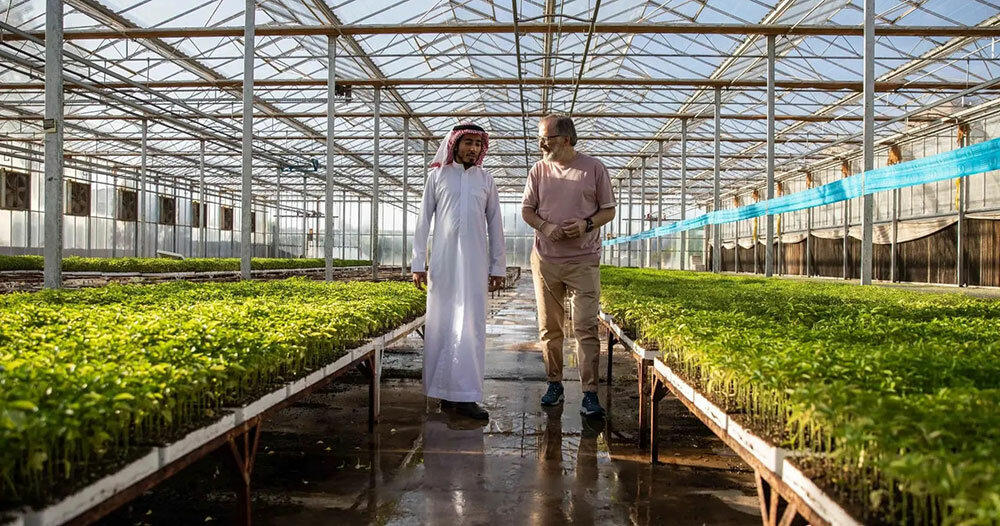Greenhouse Farming: Making Best Use Of Plant Yields and Sustainability
Are you seeking to optimize your crop returns while advertising sustainability? Look no more than greenhouse farming. With managed atmospheres and minimized water use, greenhouse farming supplies the perfect option for year-round production of fresh produce. By taking advantage of the power of innovation and lasting techniques, you can guarantee an abundant harvest while decreasing your environmental influence. Discover the advantages of greenhouse farming and begin profiting today!
Advantages of Greenhouse Farming
Are you questioning what makes greenhouse farming so useful? One of the significant benefits of greenhouse farming is the capacity to control the environment in which plants are expanded.
Another advantage of greenhouse farming is the reduction in water use. Greenhouses are developed to be water-efficient, with systems that recycle and capture water, minimizing wastage. This is particularly important in areas where water scarcity is a concern. By using water extra efficiently, greenhouse farming assists to save this precious resource.
Furthermore, greenhouse farming enables better pest and illness monitoring. With the controlled setting, it is simpler to prevent and regulate the spread of illness and insects. This decreases the requirement for harmful pesticides, making greenhouse-grown plants safer and extra eco-friendly.
Additionally, greenhouse farming provides protection versus severe weather condition events. Plants expanded in greenhouses are shielded from heavy rainfall, strong winds, and hailstorms, which can damage or destroy outside plants. Monarch Greenhouse builder Utah. This protection ensures a much more steady and trustworthy crop yield, even throughout uncertain weather problems

Maximizing Plant Returns With Controlled Settings
To make the most of crop returns in greenhouse farming, you can attain optimal outcomes by managing the atmosphere. By carefully taking care of factors such as temperature, moisture, light, and carbon dioxide degrees, you can produce the perfect conditions for your crops to flourish. One of the vital advantages of greenhouse farming is the capability to regulate these ecological factors, permitting you to customize them to the specific requirements of each crop. As an example, you can change the temperature to advertise faster growth throughout the day and lower it somewhat at evening to resemble all-natural changes. You can control humidity levels to prevent diseases and ensure correct transpiration. By providing the correct amount and top quality of light, you can expand the expanding season and rise returns. In addition, by regulating carbon dioxide degrees, you can enhance photosynthesis and encourage strenuous development. By applying these controlled atmospheres, you can take full advantage of plant yields and accomplish constant, high-quality fruit and vegetables throughout the year.
Encouraging Sustainability Via Greenhouse Farming
Optimize sustainability in greenhouse farming by carrying out effective source administration methods. One essential facet of promoting sustainability is the management of water use. By executing systems such as drip watering and recirculation, you can substantially lower water wastage and guarantee that every decrease matters. Furthermore, utilizing organic and biodegradable products for pest control and fertilization can help decrease ecological effect. Integrated Insect Monitoring (IPM) methods, for example, involve making use of helpful pests to manage insects, decreasing the demand for harmful pesticides. Energy intake can be decreased by making use of sustainable energy sources, such as solar panels, to power greenhouse procedures. This not only lowers dependence on fossil fuels but also lowers greenhouse gas emissions. Appropriate waste monitoring is an additional important element in advertising sustainability. Applying recycling and composting systems can decrease the amount of waste sent to garbage dumps while additionally giving nutrient-rich best mulching mower garden compost for plant growth. Last but not least, incorporating sustainable methods in greenhouse style, such as using energy-efficient products and optimizing all-natural lighting, can further boost sustainability. By embracing these source management techniques, you can add to a more lasting future in greenhouse farming.
Decreasing Water Use in Greenhouse Farming
By executing efficient water administration techniques, you can significantly decrease water usage in greenhouse farming. Water is a necessary source in agriculture, and saving it not only benefits the setting but likewise assists to take full advantage of plant returns and success. One reliable method to lower water usage pop over here is via the use of drip irrigation systems. These systems supply water straight to the plant's origins, lessening dissipation and ensuring that every decline is made use of efficiently. Furthermore, surveillance and managing the humidity degrees inside the greenhouse can protect against unneeded water loss. By making use of sensing units and automated systems, you can adjust the air flow and watering accordingly, optimizing water usage based on the specific needs of your crops. One more strategy is to reuse and capture rain. Collecting rain from the greenhouse roof covering and saving it in containers permits you to supplement your irrigation needs without relying solely on freshwater sources. Implementing mulching techniques can help retain soil dampness, lowering the frequency of watering. Mulch work as an obstacle, avoiding water evaporation and maintaining the soil cool and moist. By embracing these water-saving practices, you can lessen water waste, conserve sources, and develop an extra lasting future for greenhouse farming.
Year-Round Manufacturing of Fresh Generate in Greenhouses
Greenhouses give a controlled setting that permits you to expand crops regardless of the outside climate conditions. Greenhouses can be equipped with heating and cooling systems to maintain optimal temperatures for different crops. By executing these techniques, you can take full advantage of the productivity of your greenhouse and appreciate a steady supply of fresh create all year long.

Conclusion
In final thought, greenhouse farming supplies many advantages for making the most of plant yields and promoting sustainability. Additionally, greenhouse farming permits for decreased water usage, making it an eco pleasant option.
One of the significant benefits of greenhouse farming is the ability to regulate the atmosphere in which plants are grown.To optimize plant yields in greenhouse farming, you can accomplish optimal outcomes website link by managing the setting. One of the vital advantages of greenhouse farming is the capacity to regulate these ecological aspects, enabling you to tailor them to the specific needs of each crop.By executing efficient water monitoring methods, you can substantially decrease water use in greenhouse farming.In conclusion, greenhouse farming gives many advantages for optimizing plant yields and advertising sustainability.